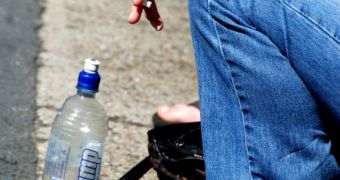According to new study data, teenagers in the US are highly neglected when it comes to their addictions, especially those of drugs and other illicit substances. Researchers show that physicians and psychologists are ill-equipped to handle the underlying problems that lead to teenagers engaging in such behavior, and, as such, can do little to prevent it. Also, comprehensive prevention programs are also missing, and the existing ones address issues that are too general for the youngsters to relate to.
“We have known that out of 1.4 million teens needing help for substance abuse, one-tenth of those get treatment. Part of this treatment gap may be driven by the limited availability of adolescent-only treatment services. Less than one-third of addiction programs in the U.S. have a specialized program for adolescents,” University of Kentucky investigator Hannah Knudsen, PhD, who is also the author of the new paper that has been published in the March 2009 issue of the Journal of Substance Abuse Treatment, shares.
“Despite the public health significance of adolescent substance abuse and the knowledge that treatment can be effective for this group, services for them are less available than for adults. It means we lose our chance at early intervention, and that families may be unable to find services for their children in their communities. The lack of comprehensive services in substance abuse programs for teens raises questions about whether teens will get what they need, since we know they are likely to have co-occurring psychiatric conditions and to engage in HIV risk behaviors,” the scientist adds.
She also draws attention to the fact that only a handful of the existing programs are actually fit to provide high-quality care for adolescents. In some, she notes, parents aren't even asked to get involved with making their kids better, or they don't offer a complete array of services so as to ensure that the teen, once cured, will not fall back on his or her old ways. Knudsen tells that making sure a certain bad behavior is not repeated is the main goal of teen abuse therapy, because, she explains, it's relatively easy to make someone quit something that's bad for them. The problem is keeping them away from it.
“For parents who are looking for high-quality programs that offer the most comprehensive array of services, a good proxy indicator is whether that organization has an inpatient or residential level of care,” the expert points out. In some cases, she concludes, programs mix teens and adults together, which can further damage an adolescent and destroy any chance of him or her getting off the drugs.

 14 DAY TRIAL //
14 DAY TRIAL //